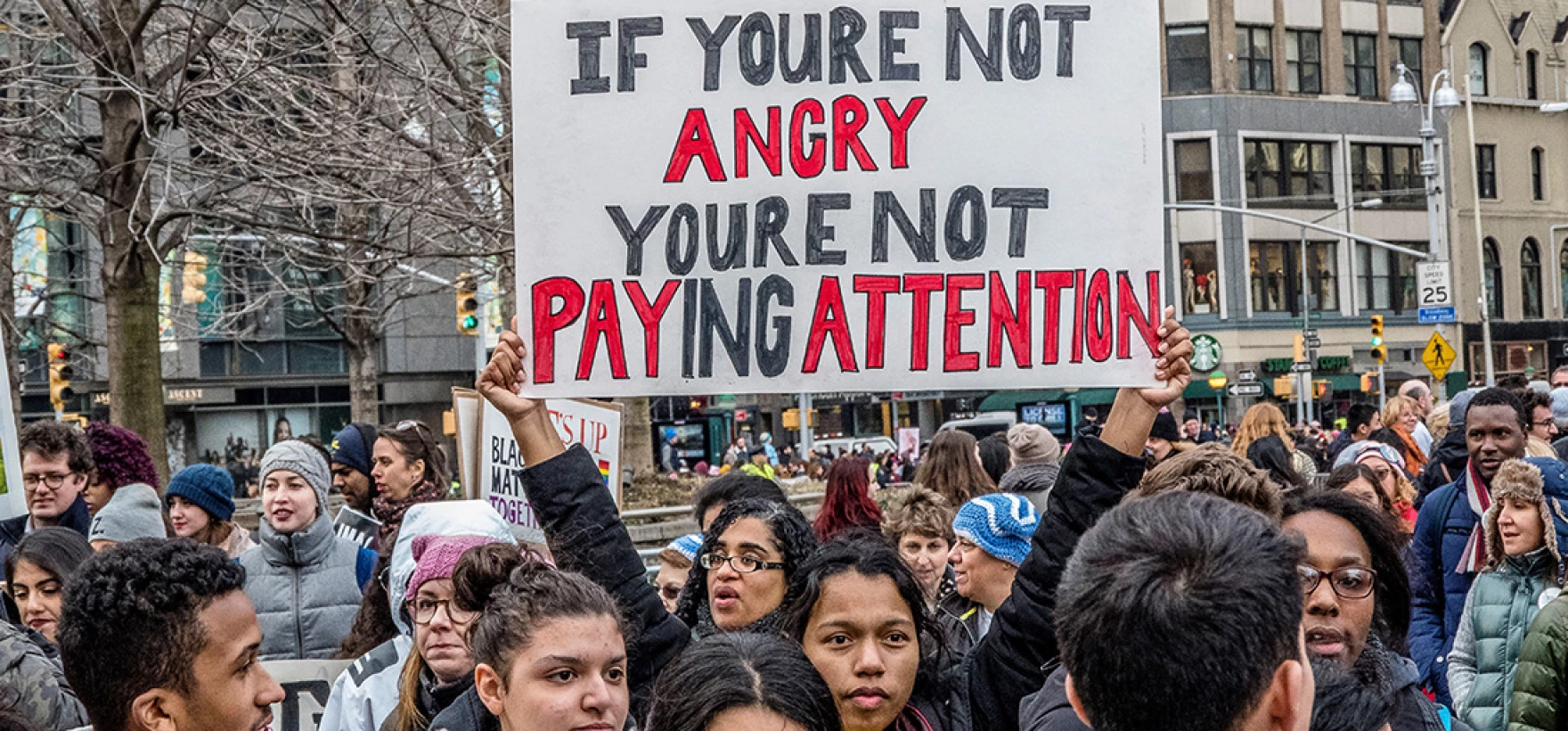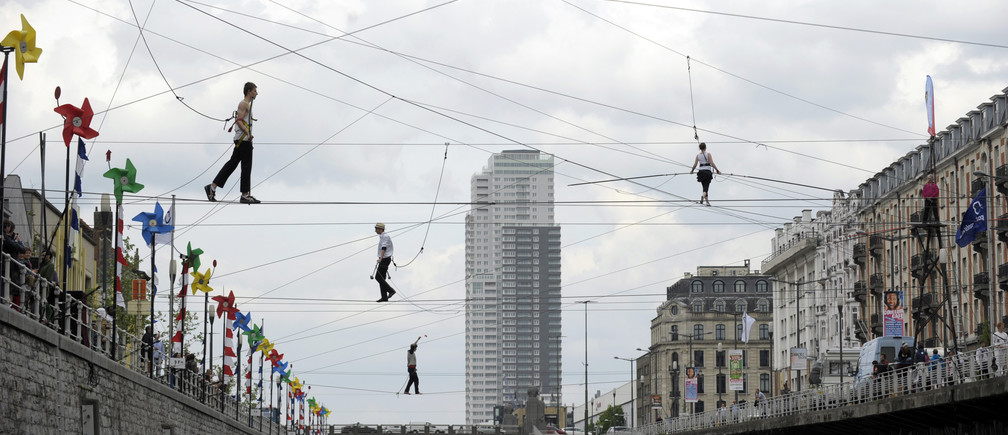By Dimitris Kouvaras,
A few days ago, I stumbled upon a meme portraying an interlocution between a Walmart cashier and someone I would presume to be a government-affiliated customer, reading as follows: “The economy is doing great! We created 5 million jobs this year”, says he. “I have 3 of them and still can’t pay my rent”, she replies. As I chuckled, I reckoned that the meme, although exaggerated, is not entirely alien to certain contemporary working settings. On the contrary, I would argue that it –unintentionally I suppose– depicts a rising category of working people, which economists like Guy Standing have dubbed to be a “class-in-the-making”: the Precariat. As you might have figured out if you have a sharp instinct for etymology, this neologism, dating to the 1980s, is derived from blending the words “precarious” and “proletariat”. It corresponds to a rising category of working people operating in a gig economy, whose job security is heavily compromised, among other things, leading them to a prolonged state of precarity and placing them towards the bottom of the contemporary socioeconomic hierarchy. The woman in the meme, struggling to make ends meet in a low-skilled and probably part-time occupation, could be one of them, and the fact that growing numbers of people find themselves in similar labour relations is revealing of the inequalities and shortcomings present in western liberal economies.

The Precariat is a peculiar category; one that matches the complexity of a gig economy’s labour market and the fluidity of the modern workplace. But is it a class? Certainly, it is not a class in the Marxist sense, monolithically defined as a precisely delineated group of people classified based on specific materialist criteria, i.e. their relation to the means of production. After all, the latter definition of class is rendered weak in describing the experience of modern working people –depending on a lot more than whether they own a business or not–, while it eschews conscience and class identity appropriation. For example, small businessmen or producers today are probably worse off than heavily remunerated CEOs, while an increased commercialisation and affordability of goods and services pertaining to an urban bourgeois-like lifestyle have enabled many to identify as middle class. What’s more, the traditional industrial working class is shrinking as manufacturing has relocated largely to areas of globe with the cheapest labour, especially Asia. Nevertheless, these shifts don’t nullify the usefulness of class as a concept revealing how stratified labour positions or income-generating mechanisms affect people’s living standards, social impact, and opportunities in a context of persistent inequality. Given that, let’s discuss the Precariat in specific.
There are many components that define this category, centred around the element of labour and financial insecurity. In terms of relations of production, those part of the Precariat are faced with so-called “flexible” labour contracts, such as part-time or seasonal occupations, often involving overtime and prone to disruptions, or work as freelancers. Such “flexible” occupations are usually unconnected to the academic credentials or vocation of those fulfilling them and are subject to abrupt change, which not only deprives those belonging to the Precariat of a distinct professional identity and a personal career narrative but also renders them the first socioeconomic class in history that finds itself consistently overqualified for the vacancies in offer. As for the freelancers, besides the difficulty of acquiring a stable job, they often encounter fluctuating incomes and lack of full social benefits, including healthcare and pension, while often resort to tax avoidance through unstated income to remain financially sustainable. Although the freelance market at times allows for considerable income generation, the state of precarity remains. University students or recent graduates are surprisingly prone to following these types of occupation amidst an increasingly competitive market and excessive hiring requirements. In Greece, for example, many undertake jobs in food and drink services or do private tuition in shadow education. More typical social groups falling into the Precariat umbrella are immigrants, faced with low-skill, socially undesirable, and often illicit occupations, and former members of the working class, confronting changing placements and unexpected layoffs. Typical.
The precarity of those in such working positions is aggravated by the fact that conventional income is usually their only source of wealth, as they are deprived of non-wage benefits, such as pensions, retrenchment benefits, and paid holidays, and are sometimes excluded from unemployment benefits too in case of redundancy. Therefore, their relations to the state are strained, since they enjoy little of the guarantees and economic complements it has to offer. In countries like the U.S., with a weak public sector and libertarian tendencies, parts of the Precariat risk detachment from the welfare apparatus and the full enjoyments of citizenship, especially if immigrant status is part of the equation. According to economist Guy Standing, this, along with the aforementioned factors, leads to “a general consciousness of relative deprivation and a combination of anxiety, anomie, alienation, and anger”.

This problematic set of feelings is what makes Standing deem the Precariat a “dangerous class”. To understand what that means, it’s useful to return to Marx. One of his still valid key insights is that class conflict –broadly conceived here as tensions sparked off from persistent socioeconomic inequalities and exclusions– fuels political conflict at times of crisis. Such conflict signifies the emancipation and self-realisation of a class, as political mobilisation requires identity formation. In the case of the Precariat, this process is yet incomplete, thence its characterisation as a “class in the making”. Its elements, despite the underlying similarities of their condition, operate in diverse working environments and lack a common identity. White workers from a working-class background might lack cultural or political affinity towards immigrant workers or people from a middle-class background venturing in the freelance market, especially when nationalism and culture war infiltrate mainstream politics, as in the U.S.. However, transcending these sub-divisions is a common hostility or indifference towards mainstream institutional politics, as the Precariat feels misrepresented, unbenefited and excluded. This is detrimental for liberal democracies, whose functionality depends on legitimation and political participation. Since people feel alienated, they are prone to joining dangerous political pathways defying the liberal status quo, such as illiberalism or populist neo-fascism, or renounce political involvement. If such propensities gain momentum, the consequences will be dire.
Perhaps it’s worth noting that in the U.S., a few years after the grievances of the antisystemic “Occupy Wall Street” movement –involving workers of the gig economy– remained unmet, two unconventional establishment-defying candidates came to the fore in 2016, with Trump winning the Republican nomination and then the presidency. Of course, there’s much more to that story. Yet, it hints to what direction politics can take if resentment towards the status quo and financial insecurity remain uncontrolled. One shouldn’t imagine the Precariat as an organised evil entity attacking the system, but as people closer to you and me than we might think struggling with frustration, financial hardship and disappointment amidst a flawed economy and neoliberal politics of social neglect. As the character in the meme, they might struggle to make ends meet. Considering this, I believe it’s time to get out of our bubbles and start reconsidering labour inequalities seriously. In that case, we could all use some nuanced thinking about class.
References
- Guy Standing. “The Precariat: A new dangerous class”. Bloomsbury. New York. 2011. Available here
- Guy Standing, “The Precariat and class struggle”, RCCS Annual Review. Available here




